High blood pressure, also known as hypertension, is a condition that affects millions of people worldwide. While it is commonly associated with older adults, it is becoming increasingly prevalent in younger individuals, including those as young as 18 years old. This silent threat poses serious risks to the health and well-being of young adults, who may be unaware of the long-term consequences they may face.
In this article, we will explore the causes, risk factors, symptoms, diagnosis, treatment options, and lifestyle changes that can help manage high blood pressure at 18. By understanding the importance of early intervention and prevention, we can strive to protect the health of young adults and promote a healthier future.
Table of Contents
ToggleUnderstanding high blood pressure at 18
High blood pressure occurs when the force of blood against the walls of the arteries is consistently too high. In young adults, high blood pressure at 18 is often classified as primary hypertension, which means that there is no identifiable cause. However, several factors contribute to the development of high blood pressure, including genetics, obesity, poor diet, lack of physical activity, stress, and smoking. These factors can lead to the narrowing of the arteries, increased blood volume, and overactive hormones, all of which contribute to elevated blood pressure.
Causes and risk factors
While the exact causes of high blood pressure at 18 may be unknown, there are several risk factors that increase the likelihood of developing this condition. Family history plays a significant role, as individuals with a family history of hypertension are more likely to develop high blood pressure themselves. Obesity and an unhealthy diet, high in sodium and low in potassium, can also contribute to elevated blood pressure.
Lack of physical activity and sedentary lifestyle, excessive stress, and smoking are additional risk factors that can lead to high blood pressure at a young age. It is important to be aware of these risk factors and take steps to mitigate them in order to prevent the onset of hypertension.
Long-term consequences of high blood pressure at 18

If left untreated, high blood pressure at 18 can have serious long-term consequences on an individual’s health. Over time, the constant strain on the arteries can lead to atherosclerosis, the buildup of plaque in the arteries, which increases the risk of heart disease, heart attack, and stroke. High blood pressure also puts a strain on the heart, causing it to work harder to pump blood, which can lead to heart failure.
Additionally, high blood pressure can damage the kidneys, leading to kidney disease or kidney failure. It is crucial to understand the potential long-term consequences of high blood pressure at 18 in order to take proactive steps to manage and prevent this condition.
Recognizing the symptoms
One of the challenges with high blood pressure at 18 is that it often presents with no noticeable symptoms. This is why it is often referred to as the “silent killer.” However, some individuals may experience symptoms such as headaches, dizziness, blurred vision, chest pain, shortness of breath, or nosebleeds. While these symptoms can be attributed to other conditions, it is important to be aware of them and seek medical attention if they persist or worsen. Regular blood pressure check-ups are essential in identifying high blood pressure at an early stage, even in the absence of symptoms.
Diagnosis and treatment options for high blood pressure at 18
Diagnosing high blood pressure at 18 involves measuring blood pressure through a sphygmomanometer, a device that measures the force of blood against the walls of the arteries. A blood pressure reading of 120/80 mmHg or higher on multiple occasions confirms the diagnosis of high blood pressure. Once diagnosed, treatment options for high blood pressure at 18 may include lifestyle modifications, such as adopting a healthy diet low in sodium, engaging in regular physical activity, managing stress, and quitting smoking.
In some cases, medication may be prescribed to help lower blood pressure. It is important to work closely with a healthcare professional to determine the most appropriate treatment plan for each individual.
Lifestyle changes to manage high blood pressure at 18

Making lifestyle changes is crucial in managing high blood pressure. Adopting a healthy diet that is low in sodium and rich in fruits, vegetables, whole grains, and lean proteins can help lower blood pressure. Regular physical activity, such as brisk walking, jogging, cycling, or swimming, can also contribute to maintaining a healthy blood pressure.
Managing stress through techniques like meditation, deep breathing exercises, or engaging in hobbies can help reduce blood pressure levels. Lastly, quitting smoking or avoiding secondhand smoke is essential in managing high blood pressure and promoting overall cardiovascular health.
Preventing high blood pressure at 18
Prevention is key when it comes to high blood pressure at 18. By adopting a healthy lifestyle early on, individuals can significantly reduce their risk of developing hypertension. This includes maintaining a healthy weight, eating a balanced diet, limiting sodium intake, engaging in regular physical activity, managing stress, and avoiding smoking. Regular blood pressure check-ups are also important in monitoring and detecting any changes in blood pressure levels. By taking proactive steps to prevent high blood pressure, individuals can protect their long-term health and well-being.
The importance of early intervention for high blood pressure at 18
Early intervention is crucial when it comes to high blood pressure at 18. By identifying and managing high blood pressure at an early stage, individuals can prevent or delay the onset of serious complications. Regular blood pressure check-ups, healthy lifestyle choices, and adherence to prescribed medication, if necessary, can help individuals maintain optimal blood pressure levels and reduce the risk of long-term consequences. It is essential for young adults to prioritize their health and be proactive in managing high blood pressure to ensure a healthier future.
Frequently Asked Questions
What are the risks of high blood pressure in young adults?
Young adults with high blood pressure are at higher risk for developing heart disease later in life. High blood pressure can damage the arteries and make them more likely to become clogged with plaque. This can lead to atherosclerosis, a condition in which the arteries become narrowed and hardened. Atherosclerosis can increase the risk of heart attack, stroke, and other cardiovascular problems.
In addition to the risk of heart disease, high blood pressure can also damage other organs in the body, such as the kidneys, brain, and eyes. It is important to note that high blood pressure often does not have any symptoms, so it is important to have your blood pressure checked regularly.
What causes high blood pressure in young adults?
There are a number of factors that can contribute to high blood pressure in young adults, including:
- Obesity
- Family history of high blood pressure
- Diabetes
- High cholesterol
- Smoking
- Excessive alcohol consumption
- Lack of physical activity
- Poor diet
How can I prevent high blood pressure?
The best way to prevent high blood pressure is to maintain a healthy lifestyle. This includes:
- Eating a healthy diet: Eat plenty of fruits, vegetables, and whole grains. Limit processed foods, saturated and trans fats, and salt.
- Maintaining a healthy weight: If you are overweight or obese, losing even a small amount of weight can help lower your blood pressure.
- Exercising regularly: Aim for at least 30 minutes of moderate-intensity exercise most days of the week.
- Quitting smoking: Smoking damages the arteries and raises blood pressure.
- Reducing stress: Find healthy ways to manage stress, such as exercise, yoga, or meditation.
What should I do if I have high blood pressure at 18?
If you have high blood pressure at 18, it is important to take steps to manage it. Talk to your doctor about your risk factors and how to lower your blood pressure. You may need to make changes to your diet, lifestyle, and/or take medication.
Here are some additional tips for managing high blood pressure at 18:
- Get regular checkups. Your doctor should check your blood pressure at least once a year.
- Know your family history. High blood pressure can run in families. If you have a family history of high blood pressure, you are at higher risk for developing it yourself.
- Be aware of the signs and symptoms of high blood pressure. High blood pressure often has no symptoms, but it can sometimes cause headache, dizziness, and nosebleeds. If you experience any of these symptoms, see your doctor right away.
By following these tips, you can help to lower your blood pressure and reduce your risk of developing heart disease later in life.
Conclusion
High blood pressure at 18 is a silent threat that can have serious long-term consequences if left untreated. By understanding the causes, risk factors, symptoms, diagnosis, treatment options, and lifestyle changes associated with high blood pressure, individuals can take proactive steps to manage and prevent this condition. Early intervention, through regular blood pressure check-ups and adopting a healthy lifestyle, is crucial in protecting the health and well-being of young adults. By prioritizing their health and making informed choices, individuals can strive to prevent high blood pressure at 18 and promote a healthier future.


